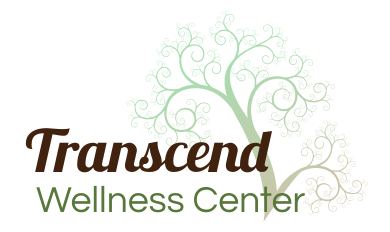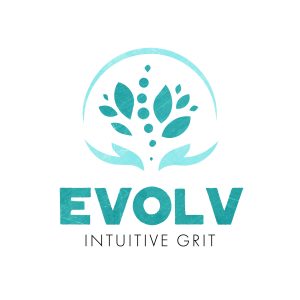
How to Set Boundaries
As a counselor and healer, one of the biggest themes I evaluate and encourage is that of self-care. I cannot tell you how many times taking care of oneself is perceived to be selfish. Ironically, the (most common) offender of this is actually OURSELVES. By in large, others tend to be more compassionate and understanding than we are of our own being. Why? Likely they too have had similar experiences in life of wanting to say no, saying yes instead, and stressing about the obligation. This can result in a pattern of committing to things we do not like or a general over-commitment to things our rhythms cannot balance or support.
What motivates saying yes when in fact, someone really wants to say no? I find the culprit is usually guilt and/or fear. Most often, someone feels like they will be disappointing another. Or perhaps, there is fear that someone will become angry due to the no. Thus, a person displaces their own need in an attempt to make those around him/her happy.
Some may challenge: What is the big deal? Good question. If it were an isolated event, probably just a momentary blip of stress. But guess what? This is more often a PATTERN of responding. Meaning, one struggles with saying no to most things. This, with time, can cause a lot of stress and anxiety. A person is more focused on the happiness of others versus their own. For people who need downtime or quiet time to re-charge, this can actually stress all areas of life. They may feel more drained, more moody, less joyful, and even find themselves avoiding the very things that they enjoy doing. Thus, they commit to activities they do not enjoy and consequently, have no energy for the things that they truly love.
My encouragement is to make space for you in your own life. Carve out time to do the things you love. Try to avoid the mentality that this somehow takes away from others. If you feed yourself as a person, the time you do spend with those you care about and the activities that matter, will actually receive MORE of you. You will be more resourced, more ‘on’, and have more to offer in those moments. There is a huge difference between being physically present and emotionally absent v. being both physically and emotionally present. Most people notice the difference and would prefer quality over quantity.
Tips on how to say no:
- When given an invite to attend or join an activity, FIRST determine how you feel about it independent of others thoughts of opinions. Meaning: Does it excite you or interest you? Do you feel stressed or panicky? Use your emotions as your internal compass as to what you really want. It is important to determine your motivation for your answer. Is it based on YOU or your concern for others?
- Is the activity or event something your work/life balance can support? If not, is there something of lesser importance that can be temporarily sidelines to support it and without unneeded disruption.
- Determine your energy needs: Sometimes we may be interested in an invite, desire to go, find a way to make it happen but just do not have the resources to attend to be fully invested. It is important to honor our need for rest and to create balance in saying no, even if we feel disappointed, knowing we can create opportunities later.
- When saying No, it is important to remember that “less is more”. So many people provide long explanations as to why they cannot (more due to guilt than necessity). This can actually create more tension around the saying no. It is more advisable to simply state “I am not able to attend. I hope you enjoy the time??” You do not have to explain WHY in detail. It is not up to the other person to determine if your reason is sufficient. If you yourself believe it is not doable, that is truly enough.
- Anticipate a disappointed response. THIS DOES NOT MEAN YOU FAILED THE PERSON. It does not mean they are disappointed in YOU. It is a normal response of someone who had an expectation or hope and it is not being realized. You did not do a bad thing. That person just has to shift their mindset. This is where I see people erupt in guilt and either change their mind to lessen that disappointment in others or give prolific explanations as to why they cannot do it.
- Instead of assuaging the discomfort of the situation by saying yes (when you want to say no), VALIDATE any disappointed responses. Meaning, if someone says “Darnit, I am so sad! I wish you would come!” You can say, “I know it’s disappointing. Perhaps the next time. It just doesn’t work this time”. Most people will actually move on after this type of interaction. The focus will sift from you not coming to either what they are hoping with the event and/or a totally different subject. There are some folks who are not respecting of others’ boundaries but I will address that in a later article.
- Validate your need for space and time to do what you want as being critical to your well-being. Make a date with you weekly and have the mindset that this seemingly unproductive time is actually critical to health and well-being. The amount we need varies by person and simply honor your level of need as being ok. Perhaps even create a mantra telling yourself that your feelings are valid and that it is healthy to say yes to self and no to others. The statement must hold a tone of some truth or it will not work. I encourage that you repeat it to yourself as opposed to the negative self talk that often emerges. Essentially, I am encouraging you to practice and replace your internal narrative (with time and practice).
- If you said No to an event, ask about how it went. It is another opportunity to connect to someone about their experience and foster that relationship, even though you did not attend. It is a demonstration of caring and interest in THEM. Guilt sometimes results in us avoiding a topic due to a desire to avoid. It actually worsens the situation by creating a message of “we cannot talk about these things” which increases emotional tension. A simple, “Hey Sam, how was the wedding?” “I was thinking about you last night? How did the conference go??
- It may be worthwhile to talk with close friends and family about your need for downtime. Some people need more. If that is your case, own it and simply tell people that you find you need to take time to do your thing. Let them know you enjoy them but you will likely say no to things due to your need to recharge. That you need this time to feel good. It is a nice way to generate healthy conversation around your need as well as help others clarify that your no is not indicative of how you feel about them. Once spoken directly to those around you, you might feel less defensive and less of a need to explain as it is already understood.
These are general tips and so many more could be added. They are examples to help cultivate ideas of your own. I encourage you to find your own style with your responses and balancing your needs in a manner that is authentic to you.
LOOKING FOR MORE HELP? NEED MORE RESOURCES OR WANTING TO CONNECT DIRECTLY? CLICK THE LINK BELOW.
CHECK OUT THE PODCAST EVOLV HERE

JOIN OUR FACEBOOK COMMUNITY HERE
